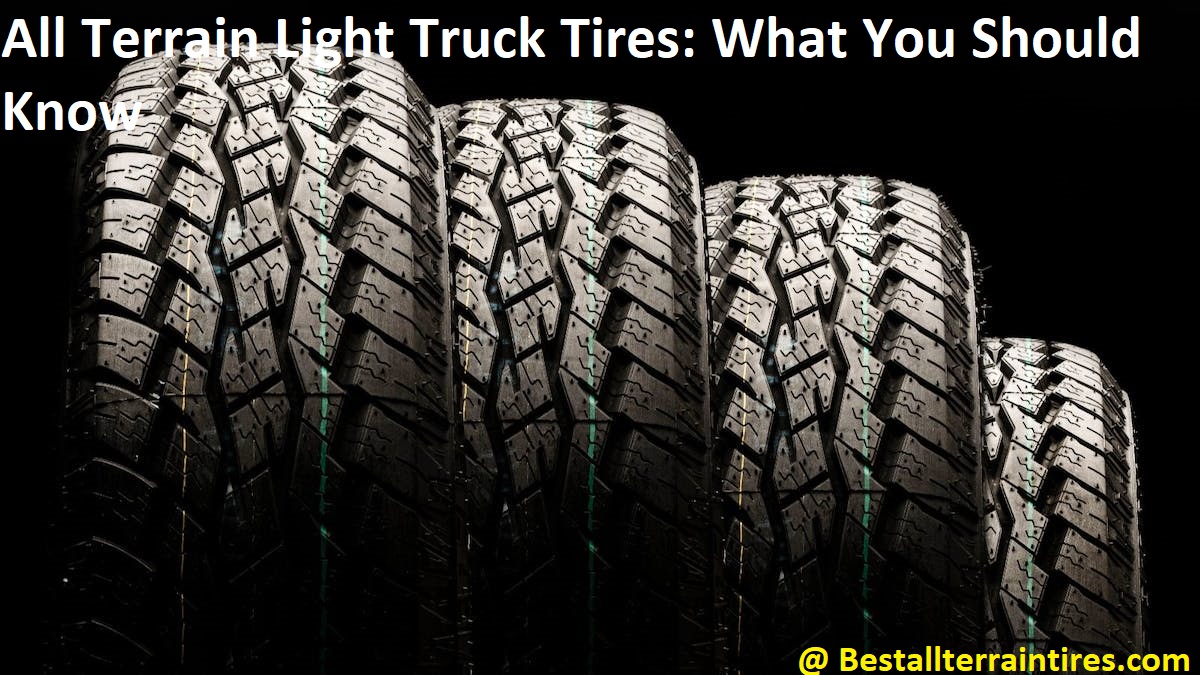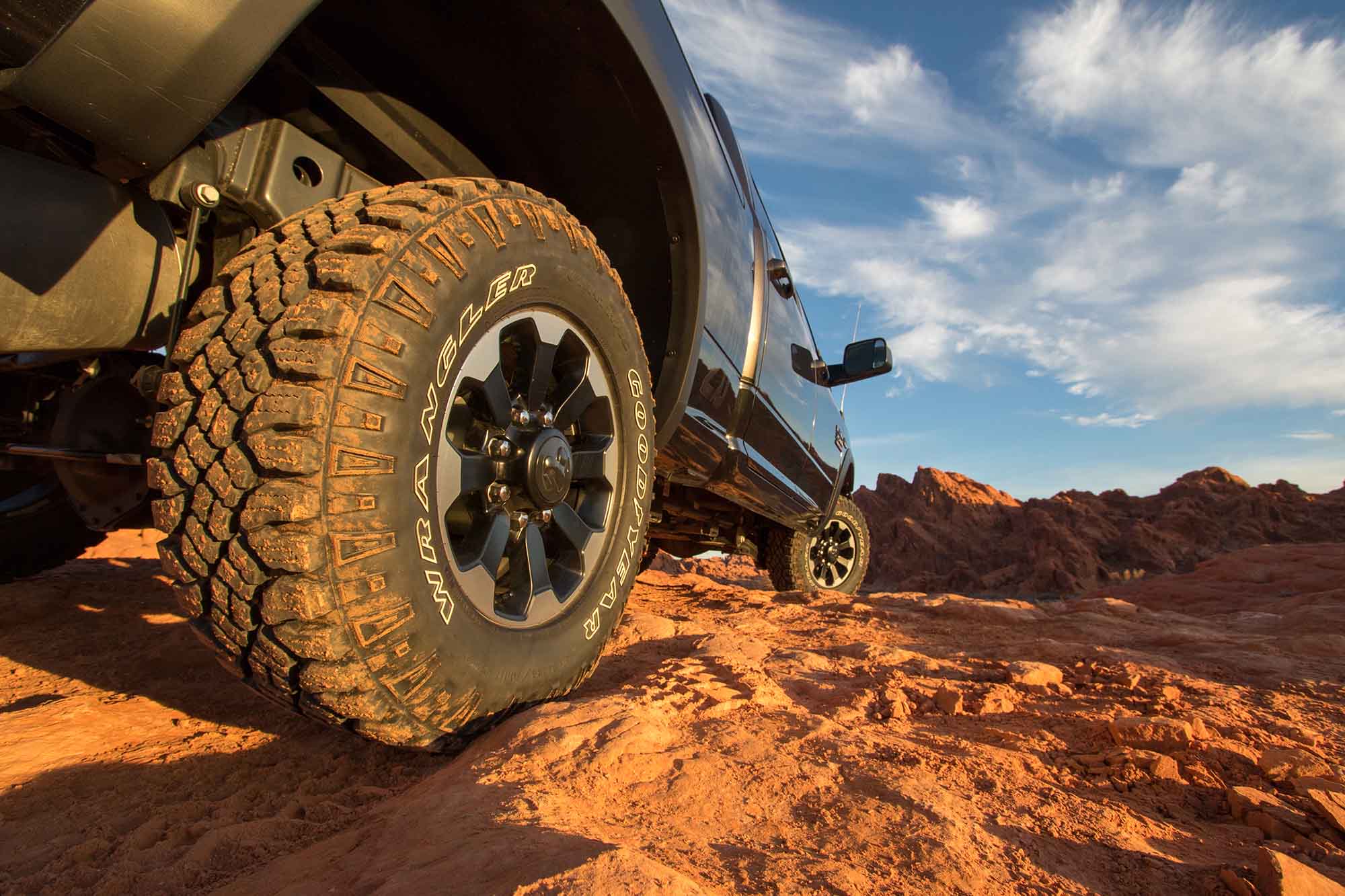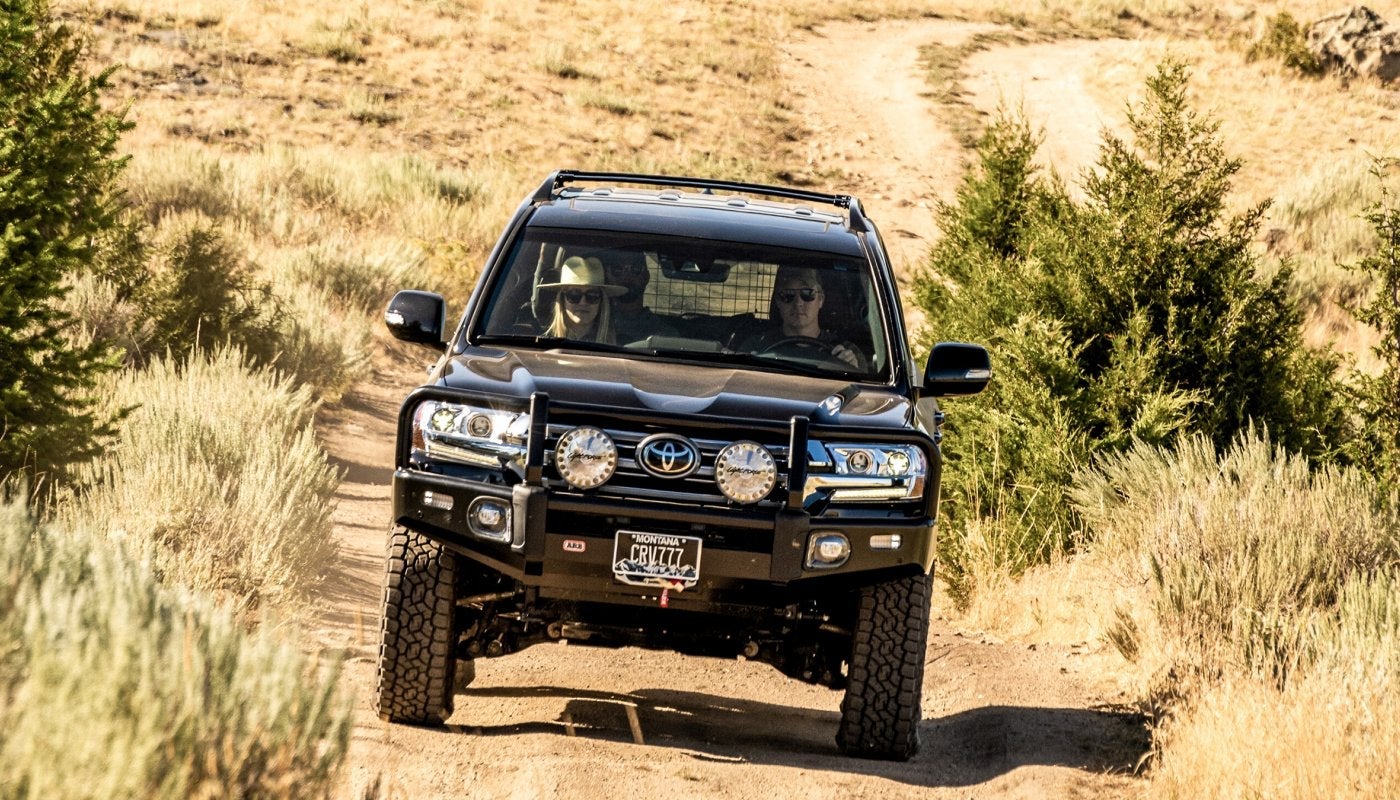Are you searching for the best light truck tires that can perform on various terrains? If so, you’ve come to the right place!
This guide will provide you with all the necessary information needed when selecting light truck tires and equip you with a better understanding of the differences between all terrain and other light truck tires.
Light truck and SUV tires are designed to provide enhanced performance, handling, traction, and stability in a variety of terrain. Light truck tires are also often used for SUV operation due to their increased load capacity,which makes them a perfect fit for any vehicle regardless of the terrain. But with so many types of light truck tires available on the market from all-season to all-terrain, it’s important to know which tire best suits your vehicle’s needs.
In this complete guide we’ll be covering: What light truck and SUV tires are;The differences between road and off-road tire construction; The benefits of each type of tire;And what factors you should consider before buying new light truck or SUV tires.
Explanation of all-terrain light truck tires
All-terrain light truck tires combine the safety, handling, and performance of a street-tire with the traction and off-road capabilities of an off-road tire. They offer advanced construction technology for effective handling on any kind of surface from mud, sand to snow pavement and provide superior puncture resistance for superior durability.
All terrain light truck tires are designed with a thicker sidewall that can withstand more abuse than regular street tires, as well as stiffer tread blocks with increased voids to enhance traction in muddy or sandy surfaces. The tread pattern is directional and non-directional depending upon the brand and type of tire chosen. Some brands even provide additional features such as stronger steel belts and sidewall lugs that allow greater traction on ice, snow or rocky surfaces.
In order to maximize the life span of your all terrain light truck tires, make sure that you observe manufacturers’ recommendations regarding inflation pressure levels, alignment angles, rotation schedule.

Importance of selecting the right tire for your vehicle
The right set of tires are important, no matter what type of vehicle you own. Tires come in many sizes and styles depending on the vehicle, terrain and other specifications. The wrong size or type of tire put on your vehicle can have adverse effects on its performance and handling characteristics, as well as being unsafe. When selecting tires for light trucks, it is important to pay close attention to the size, speed rating and tread design.
The size of the tire is one major factor when selecting a tire for your light truck. Tire sizes generally include a number for width of the tire, wheel size (diameter) and aspect ratio (height). Different vehicles may need different sizes depending on their wheel wells, axle housing and other components. Getting the wrong size will reduce performance and increase risk of damage and failure. It is also essential to take into account speed ratings when selecting a suitable tire — higher speed ratings correlate to higher speeds than lower rated-tires can handle safely.
Along with size are choices in tread patterns or designs that can be beneficial in certain terrains or applications. Further considerations would be tread wear ratings which determine how long lasting a specific set of tires may be before needing replacing or durability ratings which may indicate strength levels against punctures or sidewall deflection in certain environments. Taking into account all these features when selecting light truck tires is immensely important towards safe operations while driving on various surfaces such as mud, dirt, snow covered roads etc..
Benefits of All-Terrain Light Truck Tires
All-terrain light truck tires provide exceptional durability, reliability and versatility for a range of trucks, jeeps and off-roading activities. They are built to handle the tough terrain you would expect from an off-road tire — mud, gravel, dirt and snow.
All-terrain light truck tires also offer superior traction control which provides greater control over your vehicle in challenging conditions. Additionally, all-terrain tires feature a puncture protection system that helps guard against unexpected damages while on the road or during off-roads excursions.
The tread pattern is designed to increase your vehicle stability while providing gripping power in wet or dry conditions. All these features provide peace of mind knowing your vehicle will be well equipped to handle any situation you may encounter on the roads or trails.
Enhanced off-road capabilities
Light truck tires are often designed with a rigid tread pattern and special rubber compounds. This combination helps increase the tires’ grip on uneven terrain, giving drivers increased confidence when navigating off road. Many light truck tires also boast large shoulder lugs for additional traction in adverse conditions such as mud and snow, as well as aggressive sidewalls that work together to prevent punctures when driving through sharp rocks or branches.

When shopping for light truck tires, it is advised to pay special attention to their ratings — the higher the rating (in millimeters or inches), the better they are suited for off-road use.
Improved traction in various weather conditions
While all-season light truck tires are a suitable option for most driving conditions, they lack the added grip and improved handling that an all-terrain light truck tire provides. All-terrain tires have tougher carcasses and tougher rubber compounds compared to their highway cousins, allowing them to provide more traction in a variety of weather conditions. An all-terrain tire will also last longer, thanks to its tough construction and resilient design.
They can be used in nearly any type of weather: on wet or even snow covered roads, to street and highway surfaces. These tires are also designed for improved handling on dirt roads and off road use with mud, gravel, or rocky surfaces. All terrain truck tires usually come with wide treads that help with dispersing water from the tire surface increasing the grip on dry weather conditions as well as providing a safe driving experience during heavy rain storms or slippery surfaces like snow. All terrain tire grooves also increase their resistance against wear which leads to an extended service life in comparison to an all season light truck tire.
Increased durability and longer lifespan
Light truck tires are designed for improved performance, enhanced road grip and better traction in challenging weather conditions and on different terrains. These tires provide increased durability and can last up to 50% longer than standard light truck tires, making them an attractive choice for those who want to invest in a long-lasting tire that can withstand occasional rugged use.
Light truck tires provide stability on rough surfaces by having deeper treads that penetrate through mud, sand or gravel. They also offer enhanced curb protection because of their steel construction and protective sidewall design that provide strength and flexibility when driving over obstacles or through more challenging areas. This extra fortification with durable materials helps protect the tire from cuts, punctures and other damage while also providing increased control in wet or icy conditions.
III. Factors to Consider When Choosing All-Terrain Light Truck Tires
When shopping for all-terrain light truck tires, there are several things you should consider. Knowing which factors to take into account can help you purchase tires that best fit your vehicle and driving needs. The main considerations when selecting all-terrain light truck tires include tread design, tire size, speed rating, load index and warranty coverage.
Tread Design: All-terrain light truck tires may feature aggressive or non-aggressive tread designs. Aggressive tread designs offer enhanced traction in soft surfaces, while the non-aggressive tread designs offer better road performance. Select a design based on the type of terrain you will be traversing most often.
Tire Size: All-terrain light truck tires are available in multiple sizes to fit different make and model vehicles. Determine the correct size by consulting your owner’s manual or contacting a reputable tire dealer for assistance. It’s important to purchase a tire that is appropriate for your vehicle size and weight rating to ensure optimal performance, handling and safety on the road.
Speed Rating: The speed rating of an all-terrain light truck tire indicates how quickly it can safely travel on dry surfaces without suffering any damage or degrading performance values such as handling and wet grip. Consult your owner’s manual to determine which speed rating is best suited for your application before making a purchase decision.
Load Index: Load index is another important factor to consider when purchasing all-terrain light truck tires since it reflects how much weight each tire can hold safely and effectively within its specific load range before too much internal strain occurs or damage occurs (tire blowouts). Choose a load index that corresponds with the maximum weight capacity of your vehicle as listed in the owner’s manual or consult with an experienced professional if needed.
Warranty Coverage: Most all-terrain light truck tires come with some form of manufacturer warranty coverage that provides financial protection from damages resulting from certain defects in workmanship or materials used during production (prorated coverage). Be sure to read through any terms associated with warranties very carefully regarding which situations are covered before making an informed decision about which product will be most economical in the long run according to your uses/needs/desires.
Tire Size and Load Capacity
Choosing the right size tires is one of the most important factors when it comes to getting the most out of your light truck.
The size is typically determined by either the width and height in inches, or sometimes by the diameter.
When choosing a tire size for your light truck, you should always pay attention to its load index. This classified system helps you determine how much weight a particular size tire can support safely. The higher the number, the higher the load carrying capacity.
It is important to match this rating with your vehicle’s recommended tire pressure as well as payload capacity to ensure that you get maximum performance from your ATV tires without any risk of blowouts or other dangerous situations due to overloading them.
Tread Pattern and Design
When it comes to light truck tires, the tread pattern and design play an important role when it comes to finding the perfect tire for your needs. Tread patterns can vary from large aggressive blocks for improved traction on off-road terrain to smoother treads that are more suitable for dry pavement conditions. It is important to understand the type of terrain and conditions you will be driving in before selecting a tire with an aggressive or a more subtle tread pattern design.
Light truck tires typically feature larger blocks with deeper grooves that provide increased traction and stability on off-road surfaces such as mud, sand and gravel. More aggressive off-road tires also feature sidewalls that are designed to give increased protection against rocks, stumps, and other protruding objects. It is important to note that these rugged designs often generate more road noise as well as faster wear given their more rigid structure.

For regular pavement conditions such as asphalt or concrete, a smoother tread pattern with minimal grooves may be best suited for your needs. Most Passenger Car All Season (PCAS) tires feature high tech silica compounds that allow them provide superior grip on wet surfaces in addition to reducing road noise emitted by the tire compared when compared to off-road tires. Light truck all season tires are designed for street use and include added features such as siping technology which provides extra slippery protection on wet surfaces together with an added layer of protection from punctures compared all other light truck tire type categories.
Conclusion
Having a clear understanding of all terrain light truck tires is key when it comes to choosing the right tire for your vehicle. Taking into account such factors as the type of vehicle, driving style, and geographical location will ensure that you make the most out of investing in the right tires.
All terrain tires provide excellent performance on most terrain types, however they should be paired with a more aggressive off-road tire when traveling on extreme terrains such as mud and snow. All terrain light truck tires also offer added traction and grip when turning sharply during cornering and are able to provide superior handling over other tire types as well.
It is important to note that these tires perform best when inflated regularly at their recommended pressures for optimal performance and longevity. Taking into account these factors will help you make an informed decision when it comes to choosing the best tire for you, ensuring satisfaction with your purchase.
FAQs
What are all-terrain tires best for?
All-terrain tires are best for vehicles that are driven both on and off-road, providing good traction and handling in a variety of terrains, including gravel, dirt, mud, and snow.
Can I put all-terrain tires on my truck?
Yes, all-terrain tires are a popular choice for trucks as they provide excellent grip and durability on a range of surfaces.
What is the difference between LT and all-terrain tires?
LT (Light Truck) tires are designed specifically for trucks and SUVs, while all-terrain tires are designed to perform well on both on and off-road surfaces.
What is the best rated all-terrain truck tire?
The best rated all-terrain truck tire varies depending on personal preference and the specific needs of the driver. Some popular options include the Michelin LTX A/T2, Goodyear Wrangler Duratrac, and BFGoodrich All-Terrain T/A KO2.
What are disadvantages of all terrain Tyres?
Disadvantages of all-terrain tires can include increased road noise, reduced fuel efficiency, and a less comfortable ride on paved roads compared to standard tires.
Do all terrain Tyres use more fuel?
Yes, all-terrain tires can use more fuel than standard tires due to their more aggressive tread patterns and heavier construction.
Do all-terrain tires need more air?
All-terrain tires typically require the same air pressure as standard tires, but it is important to check the manufacturer’s recommendations for optimal performance and safety.
How long do all terrain Tyres last?
The lifespan of all-terrain tires can vary depending on factors such as driving conditions, frequency of use, and maintenance. On average, they can last between 40,000 to 60,000 miles.
Are all-terrain tires good in rain?
Yes, all-terrain tires can provide good traction in wet conditions, but it is important to drive carefully and adjust your speed to avoid hydroplaning.
What is the longest lasting all-terrain tires?
The longevity of all-terrain tires can vary depending on several factors. Some of the longest lasting options on the market include the Goodyear Wrangler Duratrac, Michelin LTX A/T2, and BFGoodrich All-Terrain T/A KO2.
See Also-
- Best 35×12 50r20 All Terrain Tires
- Best 265/65R18 All Terrain Tires
- Best 26570R16 All Terrain Tires
- Best 265/70R17 All Terrain Tires
- Best 265/75R16 All Terrain Tires
Jose T. Salazar is a passionate automotive enthusiast and tire expert, dedicated to helping fellow drivers conquer all types of terrain. With a lifelong fascination for cars and a deep knowledge of tires, he has made it his mission to guide readers towards making informed decisions about their tire choices.Read more about our team members.

